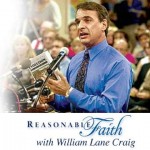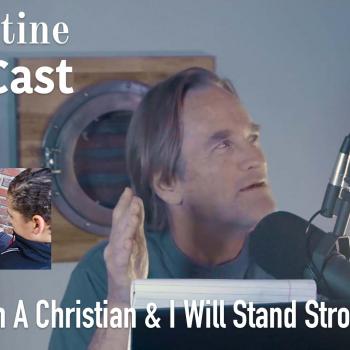
 Why do you believe the Bible? What does it mean to “believe” in the first place? Should we think of faith as a kind of blind leap or shot in the dark? If so, why have you made this particular leap, in contrast to all the other faith options? On this program, the hosts will seek to answer these questions as they begin to look at the nature and meaning of faith. Join us as we begin this exciting, new series on the White Horse Inn.
Why do you believe the Bible? What does it mean to “believe” in the first place? Should we think of faith as a kind of blind leap or shot in the dark? If so, why have you made this particular leap, in contrast to all the other faith options? On this program, the hosts will seek to answer these questions as they begin to look at the nature and meaning of faith. Join us as we begin this exciting, new series on the White Horse Inn.
Host Quote:
“In the New Testament, faith is often used to describe a body of content or doctrine. You think about that, the faith in Jude 1:3 or the Apostle Paul in 1 Corinthians 15 talking about delivering to the Corinthian church what he had also received, which is basically the Gospel. He expresses it there in those first few verses, but this body of doctrine called ‘the faith’ is what we are placing our faith in. They go hand in hand.” – Adriel Sanchez
Term to Learn:
“The Objectivity of the Faith”
To believe in something without first seriously reflecting on it or looking into it is not an act of faith, it is an act of foolishness. It is not, as some have held, a virtue to believe something without evidence or reason. The person who says, “You just have to have faith,” is really just proclaiming he has no idea what faith is. The whole point of Christianity is not that we have faith—that is no different from any other religion or worldview. If just having faith were the goal, all would be saved since everyone believes something. No, faith itself is not the object. In fact, what differentiates religions is the object of each faith. The content of faith ultimately is what matters. And the content of a faith is what must be investigated and then embraced or rejected.
Paul argued based on facts that could be investigated by anyone who was interested. He recognized that if Christianity was true, it must be rooted in facts. Paul saw the contact point in the historical, physical, temporal aspects of the life of Jesus. Jesus was a real person who did and said certain things in certain places at certain times. Witnesses to Jesus’ life and teaching could be found and questioned regarding these things.
Jesus’ reality—His historicity—is the foundation of Christianity. Without it, there is no Christianity. Paul was so sure of this foundation that he went so far as to point out the most vulnerable claim of the Christian faith [in 1 Corinthians 15:12–19].
If Jesus did not live, do, and say the things claimed by the apostles, then Christianity is false. If there is a better explanation for the resurrection, then Christians are simply wasting their time.
By pointing out this vulnerability, Paul was really pointing out the strength of Christianity. So convinced was he of the historicity and verifiability of the resurrection, the event that confirmed the claims of Jesus, that he pointed out how to prove it false—almost as a challenge. Christian claims can be investigated and tested. This challenge has no parallel in other religions. No other sacred text shows how to destroy its own claims.
The church fathers showed they understood the importance of Jesus’ historicity when they crafted the Nicene Creed, the universally accepted creed of the church. The creed says, “For our sake he was crucified under Pontius Pilate; he suffered death and was buried.” Why mention Pontius Pilate? What doctrine is based on him? The answer is: none; there is no doctrine based on Pilate. He is mentioned to remind us that these were real events happening to a real person at a particular point in history. (Doug Powell, Holman Quick Source Guide to Christian Apologetics, pp. 11, 16, 18)













